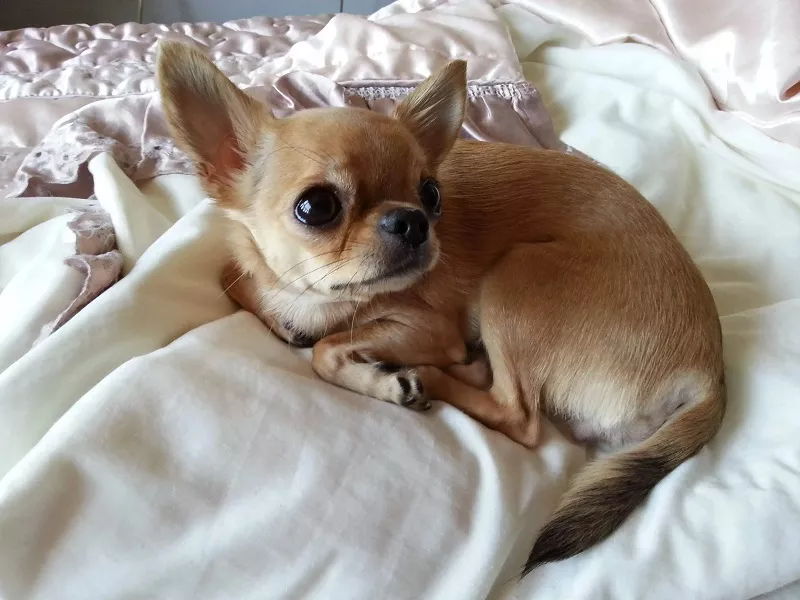Chihuahuas are known for their feisty personalities and their tendency to bark excessively. While barking is a natural behavior for dogs, it can become a problem if it becomes excessive or disruptive. Fortunately, there are ways to train your Chihuahua to bark less and become a quieter, more well-behaved companion. Here’s a detailed guide on how to train a Chihuahua not to bark:
Understanding the Reasons for Barking
Before you can effectively train your Chihuahua not to bark, it’s important to understand why they’re barking in the first place. Some common reasons why Chihuahuas bark include:
- Attention-seeking: Chihuahuas are social dogs and may bark to get attention from their owners.
- Fear or anxiety: Chihuahuas may bark when they’re afraid or anxious, especially if they’re in a new or unfamiliar environment.
- Territorial behavior: Chihuahuas may bark to defend their territory or to alert their owners to potential threats.
- Boredom or loneliness: Chihuahuas may bark excessively if they’re bored or lonely, especially if they’re left alone for long periods of time.
By identifying the underlying reasons for your Chihuahua’s barking, you can tailor your training approach to address those specific issues.
Positive Reinforcement Training
Positive reinforcement training is a popular and effective way to train dogs to behave in a desired way. The basic idea behind positive reinforcement training is to reward your Chihuahua for good behavior, and to ignore or redirect undesirable behavior.
To train your Chihuahua not to bark, you can use positive reinforcement techniques such as:
- Treats: When your Chihuahua is quiet, give them a treat to reward them for their good behavior.
- Praise: Use a happy, upbeat tone of voice to praise your Chihuahua when they’re quiet.
- Redirecting: When your Chihuahua starts to bark, redirect their attention to a toy or a training command, such as “sit” or “stay.”
Consistency and Persistence
Training a Chihuahua not to bark requires consistency and persistence. You’ll need to be patient and persistent in your training efforts, and be consistent in your expectations and rewards.
Here are some tips for being consistent and persistent in your training efforts:
- Set clear boundaries: Let your Chihuahua know when it’s appropriate to bark and when it’s not. For example, you can teach your Chihuahua to bark to alert you to someone at the door, but to be quiet once you’ve acknowledged the visitor.
- Use a consistent training command: Choose a command, such as “quiet” or “enough,” and use it consistently when you want your Chihuahua to stop barking.
- Practice regularly: Set aside time each day to work on training your Chihuahua not to bark. This can be as simple as practicing commands during your daily walks or playtime.
Dealing with Excessive Barking
If your Chihuahua’s barking is excessive or disruptive, there are some additional steps you can take to address the problem. These include:
- Exercise and playtime: Make sure your Chihuahua is getting enough exercise and playtime, as this can help reduce boredom and anxiety that may contribute to excessive barking.
- Desensitization: If your Chihuahua is barking at specific triggers, such as strangers or other dogs, you can work on desensitizing them to those triggers by gradually exposing them to the stimulus in a controlled environment.
- Professional help: If your Chihuahua’s barking is persistent and disruptive, consider seeking help from a professional dog trainer or behaviorist.
Training a Chihuahua not to bark can be challenging, but it’s an important part of being a responsible dog owner. By understanding why your Chihuahua is barking, using positive reinforcement techniques, and being consistent and persistent in your training efforts, you can teach your Chihuahua to bark less and become a quieter, more well-behaved companion.
Remember to be patient and kind with your Chihuahua throughout the training process. Barking is a natural behavior for dogs, and it may take time for your Chihuahua to understand what you’re asking of them. With patience, persistence, and lots of love, you can help your Chihuahua become a happy and well-adjusted member of your family.


























